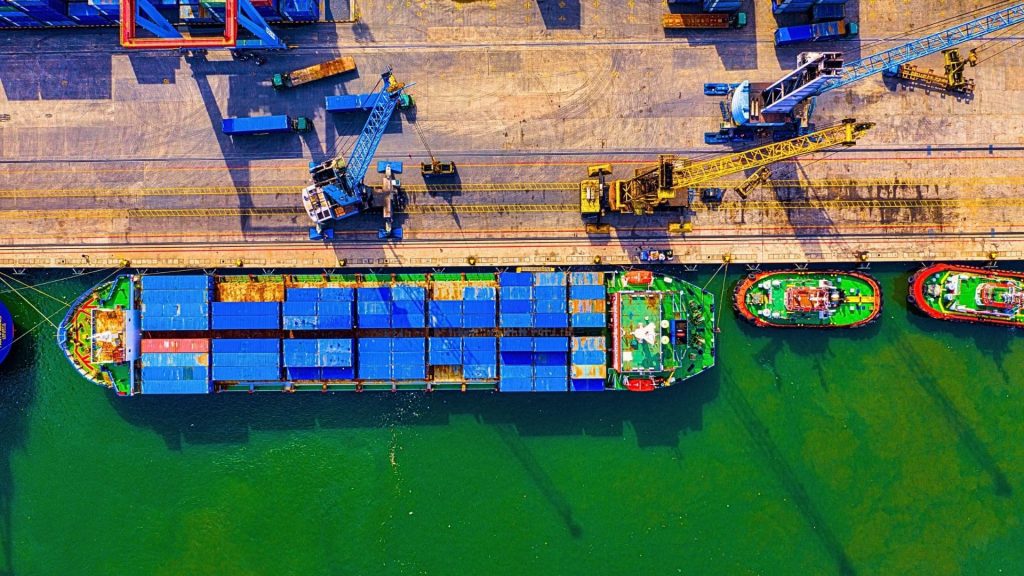
International shipping involves more than transportation—it’s a chain of interconnected processes where customs clearance plays a critical role. Inaccurate documentation, evolving regulations, or misclassified goods can cause shipment delays and compliance risks.
For freight forwarders and importers operating in Saudi Arabia, it’s essential to understand and improve the customs process. At Fast n Accurate Logistics, we specialize in guiding companies through Saudi Arabia’s regulatory framework efficiently.
This guide outlines how to simplify customs clearance while reducing risks and improving shipment timelines.
What Makes Customs Clearance Challenging?
Customs clearance ensures that goods meet a country’s regulatory, tax, and safety requirements. In Saudi Arabia, this process is tightly governed by ZATCA (Zakat, Tax and Customs Authority) and often involves coordination with agencies such as SFDA and SASO.
Key challenges include:
- Regulatory variation: Rules differ based on product category, origin country, and destination port.
- Changing requirements: Saudi Arabia frequently updates trade compliance laws and digital processes.
- Documentation sensitivity: A missing or inconsistent detail—such as invoice value or HS code—can halt clearance.
- Customs inspections: High-risk or misdeclared goods may be flagged for physical inspection, causing delays.
- Multiple authorities involved: In addition to ZATCA, specific approvals may be required from sector-specific authorities.
Understanding these challenges is the first step in creating a smoother process.
1. Work with a Licensed Customs Broker in Saudi Arabia
A customs broker is a licensed professional authorized to represent importers and exporters during the clearance process. In Saudi Arabia, brokers ensure compliance with ZATCA regulations, manage duty payments, and facilitate documentation through government portals.
The benefits of using a licensed broker include:
- Expert knowledge of tariff codes, restricted items, and clearance procedures
- Direct access to the Fasah and Nafeza systems for faster digital submissions
- Timely coordination with ZATCA, SFDA, SASO, and port officials
- Reduced risk of document errors, compliance violations, and unexpected duties
At Fast n Accurate Logistics, our brokerage team is integrated with our freight forwarding department, enabling complete coordination from shipment booking to final delivery.
2. Ensure All Documentation Is Accurate and Complete
Accurate documentation is the backbone of customs clearance. Even experienced shippers sometimes overlook minor errors, which can lead to lengthy delays or rejected shipments.
Key documents required include:
- Commercial Invoice – Lists product description, value, currency, payment terms, and consignee information
- Packing List – Specifies quantity, packaging type, and item placement for easy inspection
- Bill of Lading / Air Waybill – Contract between shipper and carrier, necessary for cargo release
- Certificate of Origin – Confirms where goods are produced, which can impact duty rates
- Import Permits or Licenses – Required for regulated goods such as food, electronics, and chemicals
- Regulatory Certifications – Including SFDA approvals (for food and pharmaceuticals) or SASO certification (for consumer products and electronics)
Ensuring that these documents are consistent, complete, and submitted in the correct format helps avoid delays at port entry.
3. Classify Goods Correctly Using HS Codes
The Harmonized System (HS) is a globally standardized coding system used to classify traded products. This classification affects the import duty, taxes, required certifications, and eligibility for exemptions.
Why proper classification matters:
- Incorrect codes may trigger overpayment or cause customs to deny clearance.
- Wrong duty rates impact your landed cost and margins.
- Incorrect classification can lead to audits or penalties.
For example:
- Laptops (HS code 847130) may be exempt from customs duty.
- Computer accessories (HS code 847149) may be subject to 5% duty.
Our brokerage team helps you determine the exact HS codes based on Saudi customs guidelines, ensuring accurate declarations and optimal tax treatment.
4. Stay Compliant with Saudi Arabia’s Trade Regulations
Saudi Arabia regularly updates its customs policies and import regulations. Companies that do not actively monitor these changes may face compliance issues or unexpected shipment delays.
Some recent and ongoing regulatory developments include:
- E-invoicing (Fatoorah): Mandatory for registered businesses to submit digital invoices through ZATCA
- SFDA regulations: Apply to food, cosmetics, medicines, and supplements; require pre-clearance registration
- SASO product certification: Needed for consumer goods, electronics, and industrial products
- Environmental packaging rules: Packaging materials must now comply with sustainability and labeling standards
- Changes in duty exemptions: Depending on bilateral agreements or temporary government exemptions
At Fast n Accurate Logistics, we monitor and interpret updates in real time, applying them across our clients’ shipments to prevent non-compliance.
5. Use Official Digital Platforms for Faster Clearance
Saudi Arabia’s customs ecosystem has become increasingly digitized. All shipments must now be processed through centralized platforms.
Key systems include:
- Fasah: Official platform for submitting import/export documentation, shipping notices, and approvals.
- Nafeza: The national single-window system that integrates customs, ports, and regulatory bodies.
- ZATCA e-Services: Portal for e-invoicing, tax filing, and customs duty payments.
Digital submission speeds up the process, reduces human error, and provides better visibility into shipment status.
Our operations team uses these platforms daily and ensures all your entries are submitted on time and in the correct format.
6. Choose a Freight Forwarder That Provides In-House Customs Clearance
When customs brokerage is outsourced separately from freight forwarding, coordination can suffer. Delays often result from unclear responsibilities, document handoffs, or communication gaps.
Working with a freight forwarder that also provides licensed customs clearance means:
- Faster coordination between shipment arrival and document preparation
- A single contact point for the entire logistics process
- Real-time status updates and fewer handovers
- Improved accountability and lower risk of delays
Fast n Accurate Logistics integrates customs clearance with our forwarding operations across Jeddah and all major Saudi ports. This model reduces clearance times and improves control over each shipment.
Advantages of a Streamlined Customs Clearance Process
Improving your customs clearance strategy produces long-term operational benefits:
- Faster cargo release and reduced port storage fees
- Lower risk of penalties or cargo holds
- Accurate landed cost calculations for budgeting and pricing
- Smoother supply chain performance across borders
- Compliance with regulatory and tax requirements
In competitive industries, the ability to ship quickly and compliantly is a key differentiator.
Why Fast n Accurate Logistics?
As a freight forwarding and customs brokerage company based in Jeddah, Saudi Arabia, we bring local experience, digital capability, and regulatory insight to your logistics operation.
We offer:
- Licensed customs brokerage for import/export shipments
- End-to-end freight services by air, sea, and land
- In-house coordination with Fasah, Nafeza, ZATCA, SFDA, and SASO
- HS code validation and classification support
- Dedicated account managers and document specialists
- Real-time updates on shipment status and clearance milestones
Our goal is to ensure every shipment clears customs smoothly—on time and fully compliant.
Frequently Asked Questions
1. How long does customs clearance usually take in Saudi Arabia?
For shipments with complete and accurate documentation, clearance is typically completed within 1–2 business days. Delays often occur due to inspection, permit issues, or incomplete paperwork.
2. What documents are mandatory for import clearance?
At minimum: commercial invoice, packing list, bill of lading or air waybill, certificate of origin, and import permit (if required). Some goods need SFDA or SASO certification.
3. Can a freight forwarder also manage customs clearance?
Yes. Freight forwarders with licensed customs brokerage services can manage both transportation and clearance. This provides faster coordination and improved visibility.
4. What happens if HS codes are incorrect?
Wrong HS codes may lead to overpayment of duties or shipment delays. Repeated errors may result in audits or penalties from customs authorities.
Conclusion
Customs clearance is a detailed process that can impact the entire logistics chain. Businesses involved in freight forwarding must treat it as a core function—integrated, informed, and fully compliant.
Working with a qualified customs broker in Saudi Arabia like Fast n Accurate Logistics ensures faster processing, fewer errors, and stronger supply chain performance.
If you’re looking to simplify your clearance procedures or improve your compliance strategy, our team is here to help.
Contact Fast n Accurate Logistics for tailored support and professional clearance solutions.




